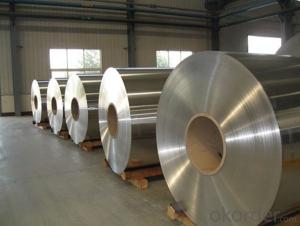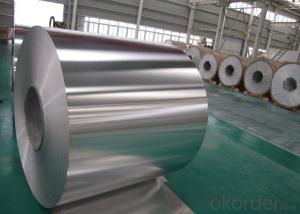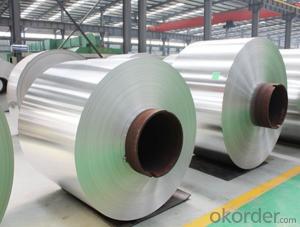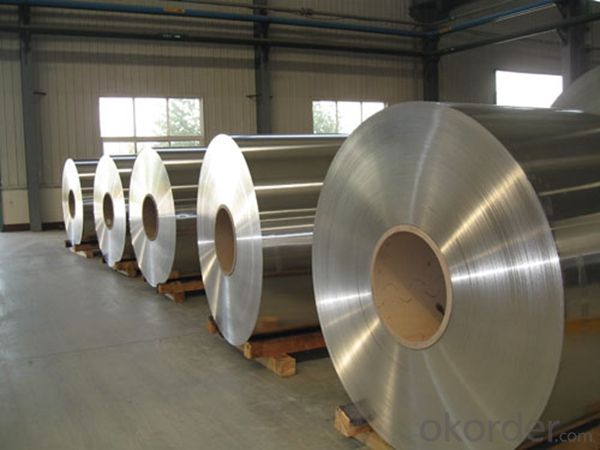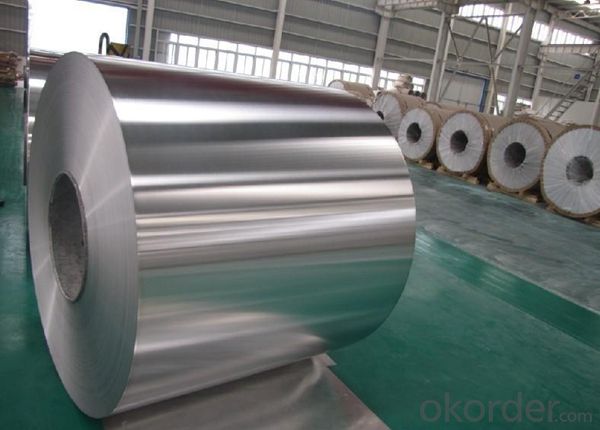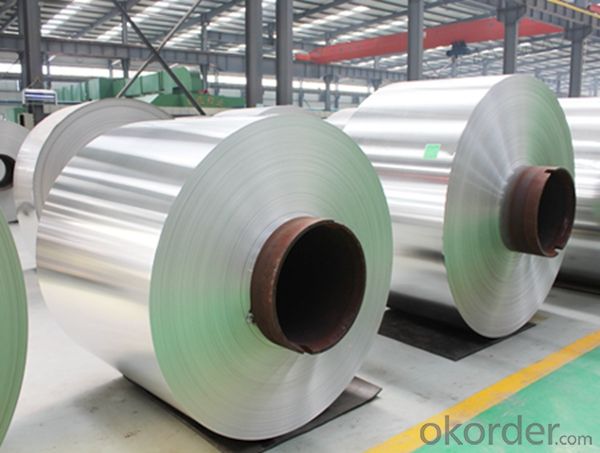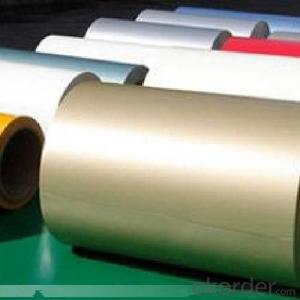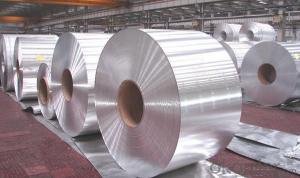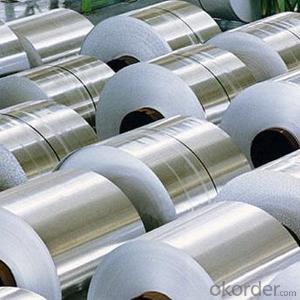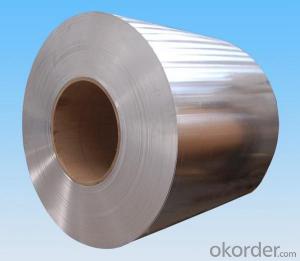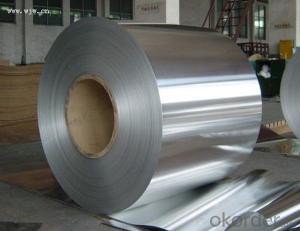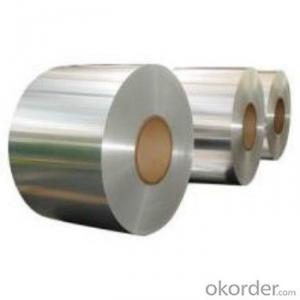Aluminum Coil Amerimax Upc 049821691820 Mill Finish Aluminium Coil AA1100 H14 for Building
- Loading Port:
- Shanghai
- Payment Terms:
- TT OR LC
- Min Order Qty:
- 5 m.t.
- Supply Capability:
- 10000 m.t./month
OKorder Service Pledge
OKorder Financial Service
You Might Also Like
Specification
1. Specification of Mill Finish Aluminium Coil AA1100 H14 for Building
Name | Aluminum Coil |
Brand | CNBM |
Alloy | 1100H-18, 3003-H24,3003-H26,3005-H26,8011,3004,3105,5005,etc. |
Thickness | 0.1~1.5mm |
Width | <2000mm< span=""> |
MOQ | 1 MT |
Coating finish | Brushed, drawing, embossed, printing |
Color | As to code RAL |
Surface | Embossed,Mill Finish,Coated,Brushed |
Gloss | 10-90%(EN ISO-2813:1994) |
Total coating thick | PVDF27 ~35micron |
Polyester18~27micron(EN ISO-2360:1995) | |
Coating hardness | 2H |
Adhesion | 5B (EN ISO-2409:1994) |
Impact resistance | No cracking and peeling (A.S.T.M D2794-1993) |
Flexibility (T-bend) | 0T- 2T |
MEK resistance | 100 |
Certification | ISO9001:2000, CE, SGS |
Coil's standard diameter | 1100mm |
Inner Diameter | 405mm/505mm |
Coil's standard weight | 1MT - 2MT |
2. Application of Mill Finish Aluminium Coil AA1100 H14 for Building
(1).Interior: wall cladding, ceilings, bathrooms, kitchens and balconies, shutters, doors...
(2).Exterior: wall cladding, facades, roofing, canopies, tunnels,column covers , renovations...
(3).Advertisement: display platforms, signboards, fascia, shop fronts...
3. Feature of Mill Finish Aluminium Coil AA1100 H14 for Building
*Such coil is specially designed to replace aluminum ingot, due to the high export tax of aluminum ingot, the coil has better price than ingot.
*This type of coil can fit customer's remelting furnace just like ingot, no need to make any change to the production line that was previously used for ingot. The standard coil size and weight is very suitable for the feed gate of furnace.
*This type of coil causes less material wastage than ingot when remelted.
*Our coil is made directly from ore, no need to go though the ingot making process, quality is much better than other suppliers who use ingot scrap to make coil.
Be free from Oil Stain, Dent, Inclusion, Scratches, Stain, Oxide Dicoloration, Breaks, Corrosion, Roll Marks, Dirt Streaks and other defect which will interfere with use
4. Certificate:
SGS and ROHS(if client request, paid by client), MTC(plant provided), Certificate of Origin(FORM A, FORM E, CO), Bureau Veritas and SGS (if client request, paid by client), CIQS certificate
5. Image of Mill Finish Aluminium Coil AA1100 H14 for Building
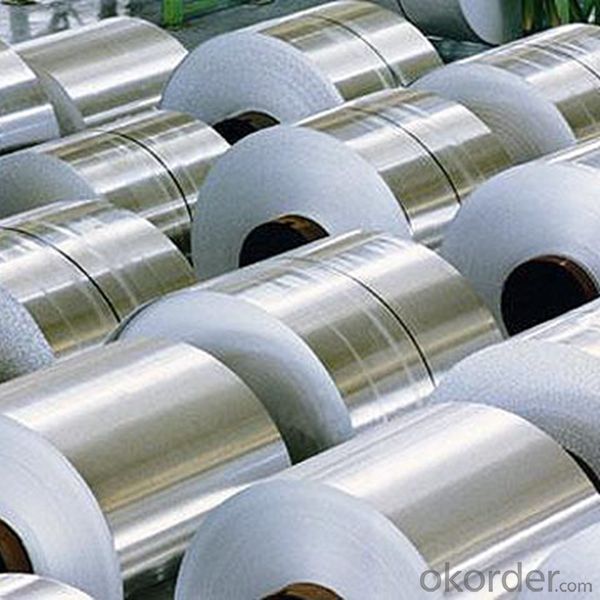
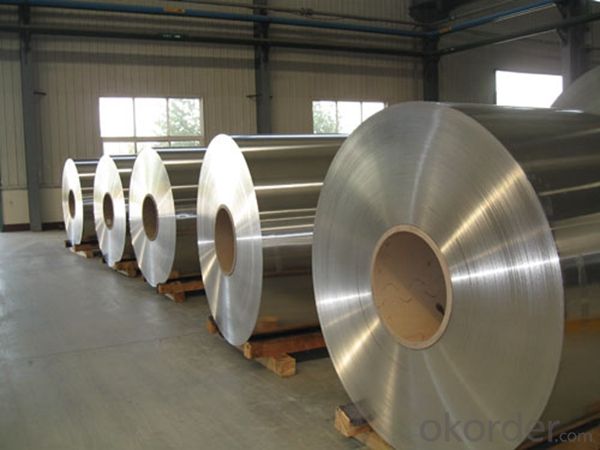
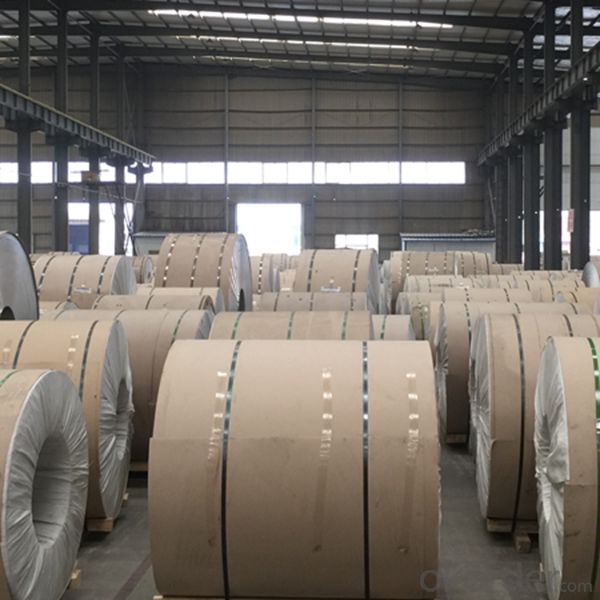
6. Package and shipping of Mill Finish Aluminium Coil AA1100 H14 for Building
eye to wall
eye to the wall
with wood pallet (wooded case also available)
7. FAQ
1) What is the delivery time?
Dpends on actual order, around 20 to 35 days
2)What is the QC system:
We have QC staff of 20 persons and advanced equipment, each production is with MTC traced from Aluminum ingot lot.
3) What market do you mainly sell to?
Australia, America, Asia, Middle East, Western Europe, Africa etc
- Q: Well, we've got the existing old school 7 layers of peeling yucky painted siding and we're trying to weigh our options. So here's my questions:1) Is it cost effective to replace Aluminum with Vinyl?2) Is Vinyl truly as costly as we keep hearing? **Home is small 1,100 sq.ft with a 2.5 car Garage**3) Is painting this existing siding a wise choice since the current paint job on it looks terrible? We just need to make it more a home, right now it's gorgeously all new and redone inside and on the outside it still resembles the day we bought it in forclosure. Aside from my green grass I busted my butt on last summer.Please advise.
- Vinyl siding, the kind that is single thickness with no backer, will bend, buckle, and distort in about 5 years. The vinyl siding with foam backer is somewhat better but not much. It will look badly in years to come. . Just drive around and look at some of those homes built just a couple years ago with that stuff on them. Notice how twisted and buckled and bent and crooked that stuff has become. Plain terrible I think. Paying that much for a house, it should last a lifetime. There are COATING companies around that will come and clean your existing aluminum siding, They will remove dents, apply a 2 part epoxy primer, and then a two part Vinyl coating that will last for 30 years under a warranty. These coatings can also be applied to wood siding, they give it a renewed look, and no painting ever again. You cannot do this yourself. It is done with airless type sprayers and it lasts literally forever. I had this done to my aluminum underhangs and gutter and wood window wells on my brick house. That stuff is so tough and smooth that even dirt or dust doesnt stick to it. Look under Vinyl Coatings in the Yellow Pages. If there is a home show in your area, go to one of those and you can see these new coatings. They are really superior to any painting you can do yourself, Yes, they cost a bunch more but they are well worth it in the long run. That Aluminum on there is 100 Times better than any vinyl will ever be. It will last indefenitely. Dont be fooled by some vinyl salesman's pitch of insulating qualities of vinyl with that thin 1/4 inch of foam on the back. That is nonsense, that thin of a foam in a side wall means nothing on insulation value for your house. Stick with your Aluminum and your wood siding and window trims, get it coated and you will be very happy with that.
- Q: What is the tensile strength of aluminum coils?
- The tensile strength of aluminum coils can vary depending on the specific alloy and temper used. However, on average, aluminum coils have a tensile strength ranging from 150 to 300 megapascals (MPa). This means that aluminum coils can withstand a pulling force of 150 to 300 MPa before breaking or deforming. It is important to note that the tensile strength may be influenced by factors such as the thickness of the coil, the manufacturing process, and any additional treatments or coatings applied to the aluminum.
- Q: Can aluminum coils be used for marine applications?
- Aluminum coils possess the ability to be utilized in marine applications. Due to its superb resistance to corrosion within saltwater environments, aluminum is a favored material choice for such applications. The formation of a natural oxide layer on its surface provides protection against corrosion. The usage of aluminum coils is frequent in marine applications, including boat hulls, decks, and structures. Moreover, aluminum's lightweight nature enhances fuel efficiency and boosts performance within marine vessels. Its exceptional strength-to-weight ratio makes it the perfect selection for constructing boats and other marine equipment. However, it is crucial to carefully choose the appropriate grade of aluminum alloy, specifically designed for marine applications, to guarantee optimal performance and durability.
- Q: Can aluminum coils be used in high-magnetic field applications?
- No, aluminum coils are not suitable for high-magnetic field applications since aluminum is not magnetic and cannot effectively interact with magnetic fields.
- Q: Can aluminum coils be used in automotive body panels?
- Yes, aluminum coils can be used in automotive body panels. Aluminum is a lightweight and corrosion-resistant material, making it an ideal choice for automotive applications. The use of aluminum coils in body panels offers several advantages, including improved fuel efficiency due to the reduced weight of the vehicle, better handling and maneuverability, and enhanced durability. Additionally, aluminum is highly recyclable, making it an environmentally friendly option for automotive manufacturing. Many automakers have already started incorporating aluminum coils in their vehicles, and this trend is expected to continue as the industry strives for lighter and more sustainable vehicles.
- Q: What are the weight and length specifications of aluminum coils?
- The weight and length specifications of aluminum coils can vary depending on the specific application and industry requirements. However, typically aluminum coils can range in weight from a few hundred pounds to several thousand pounds, and in length from a few feet to hundreds of feet.
- Q: How are aluminum coils shipped and transported?
- Aluminum coils are typically shipped and transported using various modes of transportation such as trucks, trains, and ships. They are usually wrapped in protective packaging, such as plastic or wood, to prevent damage during transit. The coils are loaded onto pallets or specialized carriers, secured with straps or bands, and then placed in shipping containers or onto flatbed trucks for transportation. The chosen mode of transport depends on the distance to be covered and the specific requirements of the shipment.
- Q: How are aluminum coils coated or treated for specific applications?
- Aluminum coils are coated or treated for specific applications through various processes such as painting, anodizing, and thermal spraying. These treatments enhance the coil's durability, corrosion resistance, and aesthetic appeal. For example, painting involves applying a protective coating of paint to the aluminum surface, while anodizing involves creating a layer of oxide on the surface to improve resistance to wear and corrosion. Thermal spraying is another method where a coating material is sprayed onto the surface using heat, providing additional protection and specific functional properties.
- Q: Can aluminum coils be used in the manufacturing of cans?
- Yes, aluminum coils can be used in the manufacturing of cans. Aluminum coils are commonly used in the canning industry as they are lightweight, durable, and provide excellent sealability, ensuring the freshness and preservation of the contents.
- Q: How do aluminum coils contribute to thermal insulation in buildings?
- There are several ways in which aluminum coils contribute to thermal insulation in buildings. Firstly, due to its excellent heat conductivity, aluminum can effectively transfer heat away from the building's interior. This allows for efficient cooling during hot summer months, as the aluminum coils can absorb and release the heat, preventing it from entering the building. Secondly, aluminum coils can be integrated into HVAC systems to control the temperature inside the building. By circulating cool air through the coils, the aluminum helps maintain a comfortable temperature, reducing the need for excessive energy consumption. Additionally, aluminum coils can be used as part of a radiant barrier insulation system. This involves placing reflective aluminum foil on the inside of walls, roofs, or attics, which reflects radiant heat back towards its source. This prevents heat transfer into the building, keeping it cooler in the summer and reducing the need for air conditioning. Moreover, aluminum coils are lightweight and easy to install, making them a cost-effective choice for thermal insulation in buildings. They can be easily shaped and fitted into various spaces, ensuring optimal coverage and maximum thermal efficiency. In conclusion, aluminum coils are essential for thermal insulation as they effectively dissipate heat, regulate temperature, and reflect radiant heat. Their versatility and efficiency make them a valuable component in creating energy-efficient and comfortable environments within buildings.
Send your message to us
Aluminum Coil Amerimax Upc 049821691820 Mill Finish Aluminium Coil AA1100 H14 for Building
- Loading Port:
- Shanghai
- Payment Terms:
- TT OR LC
- Min Order Qty:
- 5 m.t.
- Supply Capability:
- 10000 m.t./month
OKorder Service Pledge
OKorder Financial Service
Similar products
Hot products
Hot Searches
Related keywords
